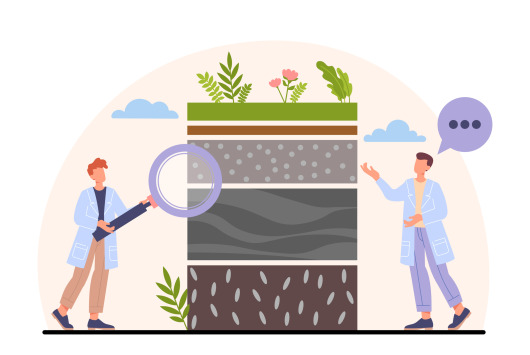
10 Essential Interview Questions for Geotechnical Engineers

Finding the right geotechnical engineer can make or break your next construction project. Professionals perform soil analysis and foundation assessments to verify the stability of building structures. But how do you identify top talent during the interview process?
A wrong hiring decision leads to expenses that exceed the amount of money paid to the employee. The absence of suitable geotechnical analysis results in foundation collapse, which extends project times and requires costly repair operations. A single incorrect calculation will lead to major financial losses of millions of dollars and dangerous safety conditions.
The following ten questions assess both technical skills and problem-solving capabilities, as well as hands-on experience in geotechnical engineering.
1. “Describe your approach to conducting a subsurface investigation for a high-rise building project.”
This question tests fundamental knowledge and methodology. Strong candidates will mention:
- Site reconnaissance and desktop studies
- Boring spacing and depth considerations
- Standard Penetration Test (SPT) procedures
- Laboratory testing requirements
- Groundwater assessment protocols
Listen for systematic thinking. Engineers who achieve top results utilize standard procedures but modify them according to the specific requirements of each construction site. The team requires communication with structural engineers and local building authorities to confirm that all work complies with the current building regulations.
The person exhibits red flags through their confusing answers and their decision to omit essential steps, including groundwater assessment.
2. “How would you determine bearing capacity for a shallow foundation on clay soil?”
This technical question separates experienced engineers from recent graduates. Expect discussion of:
- Terzaghi’s bearing capacity equation
- Undrained shear strength parameters
- Factor of safety considerations
- Settlement analysis requirements
- Load testing validation methods
The strong answers provide detailed information about construction methods and their resulting performance results. The candidate needs to present results for both ultimate bearing capacity and allowable bearing capacity calculations.
3. “Walk me through your process for designing a retaining wall system.”
Retaining wall design requires multiple engineering disciplines. Look for mentions of:
- Lateral earth pressure calculations
- Drainage design considerations
- Stability analysis (overturning, sliding, bearing)
- Construction methodology impacts
- Long-term maintenance requirements
Experienced engineers study soil-structure interaction to identify all possible failure modes that can happen. The team evaluates both constructability and cost-effectiveness in addition to theoretical calculations.
4. “Describe a challenging geotechnical problem you’ve solved and your approach.”
This behavioral question reveals problem-solving skills and real-world experience. Strong responses include:
- Clear problem identification
- Investigation methodology
- Alternative solutions considered
- Implementation challenges
- Lessons learned
Observe their approach to managing uncertainty and their communication methods with project stakeholders. Engineers who excel in their field recognize when they require extra information, and they do not hesitate to seek help from their peers.
5. “How do you assess liquefaction potential for a site?”
Liquefaction analysis is critical in seismic regions. Candidates should discuss:
- SPT-based evaluation methods
- Cone Penetration Test (CPT) applications
- Groundwater depth considerations
- Seismic hazard assessment
- Mitigation strategies
The candidate needs to demonstrate knowledge of both basic and complex analytical methods. The authors should include information about current coding system revisions, together with details about different regional coding practices.
6. “What factors influence your recommendation between driven piles and drilled shafts?”
Foundation selection requires balancing multiple factors. Expect discussion of:
- Soil conditions and bearing layers
- Load requirements and capacity
- Construction access and noise restrictions
- Cost and schedule considerations
- Quality control capabilities
Experienced engineers consider the entire project environment, rather than focusing solely on technical specifications. They are aware of what contractors can do and the current state of the local market.
7. “How do you handle conflicting soil data from different investigation methods?”
This question tests critical thinking and quality control awareness. Strong answers include:
- Data validation procedures
- Understanding method limitations
- Additional investigation recommendations
- Conservative design approaches
- Documentation requirements
The best candidates explain how they communicate uncertainty to clients and design teams. The researchers do not ignore conflicting evidence, and they do not establish their conclusions from untested hypotheses.
8. “Describe your experience with geotechnical instrumentation and monitoring.”
Modern projects often require real-time monitoring. Look for familiarity with:
- Inclinometer and piezometer installations
- Settlement monitoring systems
- Load cell applications
- Data interpretation methods
- Trigger level establishment
Candidates need to learn about installation methods and data analysis techniques. The team needs to show how monitoring data enables construction decision-making and long-term project performance assessment.
9. “How do you stay current with geotechnical engineering developments?”
The field evolves constantly with new materials, methods, and regulations. Strong engineers mention:
- Professional organization involvement
- Continuing education participation
- Technical publication reading
- Conference attendance
- Peer collaboration
Look for genuine interest in professional development. Engineers who excel in their field achieve their best results by delivering presentations, publishing papers, and participating in committee activities.
10. “What questions do you have about our projects and company culture?”
This reveals their research preparation and genuine interest. Quality candidates ask about:
- Project types and complexity
- Team collaboration approaches
- Professional development opportunities
- Technology and software usage
- Client relationship management
Weak candidates focus their questions exclusively on salary and benefits. Strong engineers need to know their role in the organization and their potential for career advancement.
Evaluating Responses Beyond Technical Knowledge
Technical competency holds importance, but you should also recognize the value of soft skills. The best geotechnical engineers communicate complex concepts clearly to non-technical stakeholders. The team members work together with architects, structural engineers, and construction contractors.
Look for problem-solving methods that consider various perspectives. Construction projects involve competing priorities and tight deadlines. Engineers need to make decisions through practical means, while being able to adapt, rather than relying solely on theoretical knowledge.
Every response from the students should demonstrate their understanding of safety principles. Geotechnical failures have significant and destructive effects. Engineers who specialize in safe design methods and perform complete quality assurance checks should be your first selection.
Making the Right Choice for Your Team
The assessment questions aim to identify candidates who possess both the necessary technical skills and real-world experience, as well as professional decision-making abilities. But remember that cultural fit matters too.
Geotechnical engineers who succeed in their work effectively combine their technical expertise with strong communication skills and successful team collaboration abilities. The team members understand that their assigned work responsibilities significantly impact both project success and public safety outcomes.
Ready to Find Your Next Geotechnical Engineering Star?
Hiring the right geotechnical engineer requires more than standard interview questions. The assessment of technical answers and real-world experience needs knowledge that is particular to each industry.
The company Hunter Recruiting focuses on finding engineering candidates for job openings. Our team possesses expertise in geotechnical engineering roles, enabling us to find suitable candidates who will advance your projects.
The way you select your next employee should move away from traditional interview procedures. Contact Hunter Recruiting to let our engineering recruitment specialists help you build a stronger technical team.













